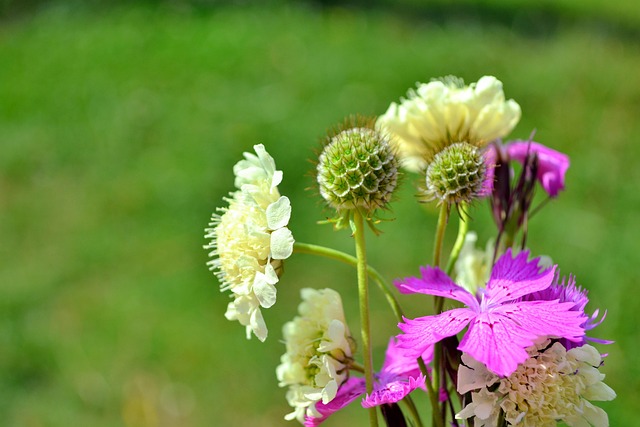July encourages exploring alternative resources for safety and cultural enrichment. Indoor herb gardening offers practical, therapeutic benefits year-round. Prepare a Culinary Disaster Preparedness Kit with herbs like basil, rosemary, thyme, and mint for emergency remedies. Online tools facilitate sharing recipes and educational resources to foster community during disruptions.
“As we step into July, it’s crucial to prepare for potential natural disasters that can disrupt our daily lives. One innovative way to enhance your disaster preparedness is by cultivating an herbal garden right in your kitchen. This article guides you through the process, from understanding common July disasters to reaping the benefits of indoor herb gardening.
We’ll explore how herbs can bolster your resilience, suggest ideal varieties for year-round growth, and provide practical tips for setting up a culinary disaster preparedness kit. Get ready to embrace a sustainable solution for both your pantry and emergency needs.”
- Understanding July's Natural Disasters: A Preview
- Benefits of Growing an Herbal Garden Indoors
- Choosing the Right Herbs for Your Kitchen
- Setting Up Your Culinary Disaster Preparedness Kit
- Cultivating and Harvesting Herbs Year-Round
- Cooking with Fresh Herbs: Disaster-Ready Recipes
Understanding July's Natural Disasters: A Preview

July brings a unique set of natural disasters across various regions, offering a preview of the unpredictable nature that can shape our world. From raging wildfires in parched landscapes to intense hurricanes along coastlines, this month demands preparation and resilience. Understanding these potential threats is crucial for every digital citizen, especially as we increasingly rely on technology and online safety guidelines for information and communication during crises.
As we navigate July’s challenges, it’s worth exploring alternative resources that can enrich our knowledge and experiences. Virtual museum tours provide a captivating way to discover art and history from the comfort of home, fostering cultural appreciation without physical limitations. Even as we face these natural occurrences, there are opportunities for growth, learning, and connection—be it through online safety guidelines or engaging with digital citizenship education resources, like those offered by study abroad opportunities literary analysis tutorials, which can enrich our understanding of global communities and foster a sense of shared resilience.
Benefits of Growing an Herbal Garden Indoors

Growing an herbal garden indoors offers a plethora of benefits during the hot July months, providing both practical and therapeutic advantages. In addition to having fresh herbs readily available for culinary creations, indoor gardening allows you to embrace creative problem-solving strategies by cultivating a green oasis in your kitchen. This is particularly beneficial when outdoor spaces are limited or weather conditions pose challenges.
Herbal gardens also serve as a year-round source of relaxation and mental stimulation. Unlike study abroad opportunities or literary analysis tutorials that may have seasonal breaks, an indoor garden provides consistent access to the calming effects of nature. Moreover, caring for plants can significantly enhance your well-being, mirroring the positive impacts of adolescent brain development as it encourages mindfulness and responsibility. Find us at outdoor education benefits, but also bring the outdoors inside through the magic of herbal gardening.
Choosing the Right Herbs for Your Kitchen

When preparing your kitchen for disaster through growing an herbal garden, choosing the right herbs is paramount. Consider those that are versatile and suitable for year-round use, especially in July’s warm climate. Herbs like basil, rosemary, thyme, and mint not only add flavor to your meals but can also serve as a calming presence during stressful times. Basil, with its tangy aroma, is perfect for summer dishes, while rosemary’s robust scent can enhance both savory and sweet recipes.
Researching these herbs extends beyond their culinary uses. Many offer medicinal properties that can be beneficial in emergency situations. For instance, mint aids digestion, thyme has antibacterial qualities, and rosemary is known for its memory-boosting effects—useful tips to keep in mind while planning your summer job search or engaging in summer reading challenges. Moreover, growing these herbs at home provides a fun and educational experience for all ages, as you can find us at science experiments at home.
Setting Up Your Culinary Disaster Preparedness Kit

As July rolls around, it’s not just back-to-school strategies that should be on your mind – preparing for potential natural disasters is a year-round responsibility. One effective way to do this is by setting up a Culinary Disaster Preparedness Kit in your kitchen. Start by designating a specific area for your kit, utilizing storage solutions like baskets or bins to keep everything organized. Think about the essential items you’ll need: non-perishable foods, water, first aid supplies, and herbs for natural remedies. Herbs like lavender and peppermint can not only add flavor to your meals but also serve medicinal purposes in a pinch.
Consider creating sub-kits within your main kit for different scenarios. For instance, a “Backpack Organization Ideas” section could include small containers with easily portable items like energy bars, a compact first aid kit, and dried herbs. Similarly, incorporate classroom management techniques by using clear labeling and color-coding to differentiate between kits for various types of disasters. Remember, in times of crisis, having access to these supplies quickly can make all the difference, so ensure you know exactly where everything is and that everyone in your household is trained on how to use them. And when you’re ready to expand your knowledge, find us at online safety guidelines for more comprehensive disaster preparedness tips.
Cultivating and Harvesting Herbs Year-Round

Cultivating and harvesting herbs year-round can be an exciting way to prepare for any disaster, natural or otherwise. While many plants thrive in specific seasons, various herb species can grow and flourish even during less favorable times of the year, such as July. By incorporating a kitchen garden with an array of fragrant and medicinal herbs, you create a valuable resource that offers both practical utility and aesthetic appeal.
For instance, consider planting common herbs like basil, rosemary, thyme, and mint. These not only add flavor to your meals but also have beneficial properties for health and wellness. In the digital age, where online resources are readily available, exploring herbal remedies and their cultivation techniques has become more accessible than ever. Summer literacy programs and cultural awareness in classrooms can even incorporate these practices as part of experiential learning, fostering a deeper connection with nature. Furthermore, studying and growing herbs can enhance study habits for teenagers, offering them a peaceful and productive hobby that promotes early childhood education benefits, such as patience, responsibility, and an appreciation for the natural world—all valuable assets in their development journey. Visit us at summer learning anytime to explore these options further!
Cooking with Fresh Herbs: Disaster-Ready Recipes

Cooking with fresh herbs is an excellent way to elevate your meals and create disaster-ready recipes that can brighten up even the dreariest post-emergency days. In the event of a natural disaster, having a kitchen stocked with aromatic plants can add variety and nutrition to limited food supplies. Imagine brewing flavorful soups or stir-fries with herbs you’ve grown yourself right in your home, providing comfort and familiarity during challenging times.
July offers the perfect opportunity to start an herbal garden, preparing you for any eventuality while also bringing a burst of color and fragrance to your kitchen throughout the year. Consider incorporating easy-to-grow herbs like basil, parsley, and mint into your back-to-school meals or online learning breaks. Online collaboration tools can help you share recipes and digital portfolio creation ideas using July educational resources, fostering a sense of community while you learn through play amidst any disruptions.
In preparation for July’s natural disasters, growing an herbal garden in your kitchen offers a sustainable and delicious way to enhance your disaster preparedness. By choosing the right herbs and cultivating them year-round, you can create a culinary disaster readiness kit that not only ensures access to fresh ingredients but also provides peace of mind. Embrace the benefits of indoor herb gardening and cook up resilient recipes that empower you to navigate unexpected challenges with ease.

Leave a Reply
You must be logged in to post a comment.